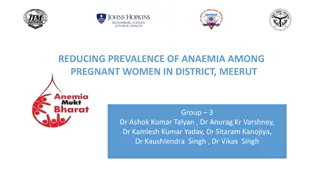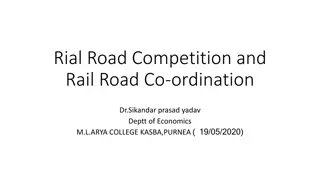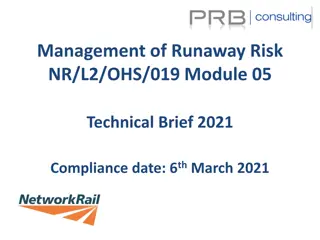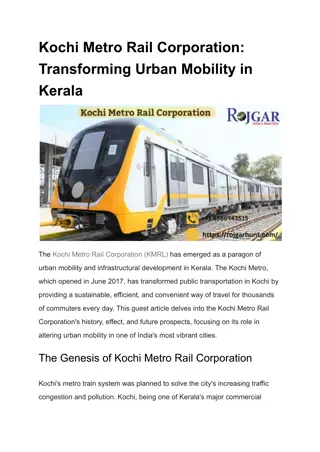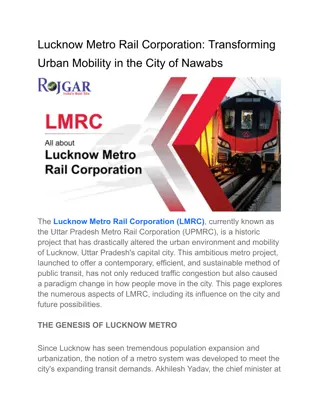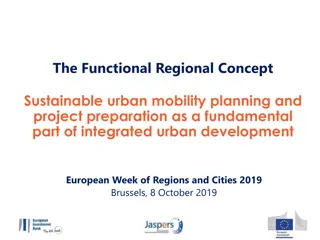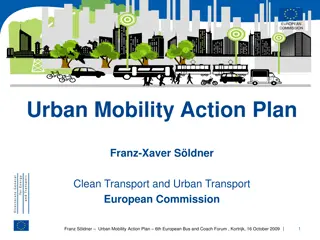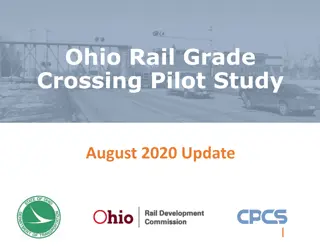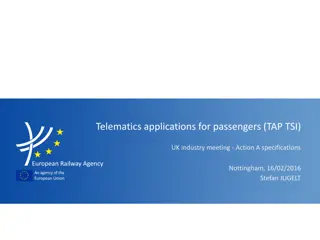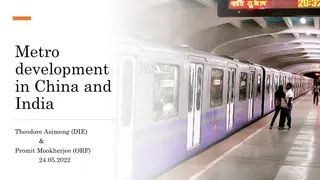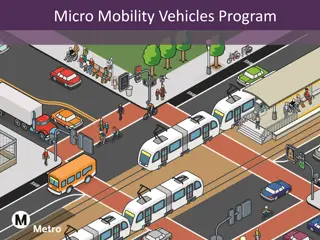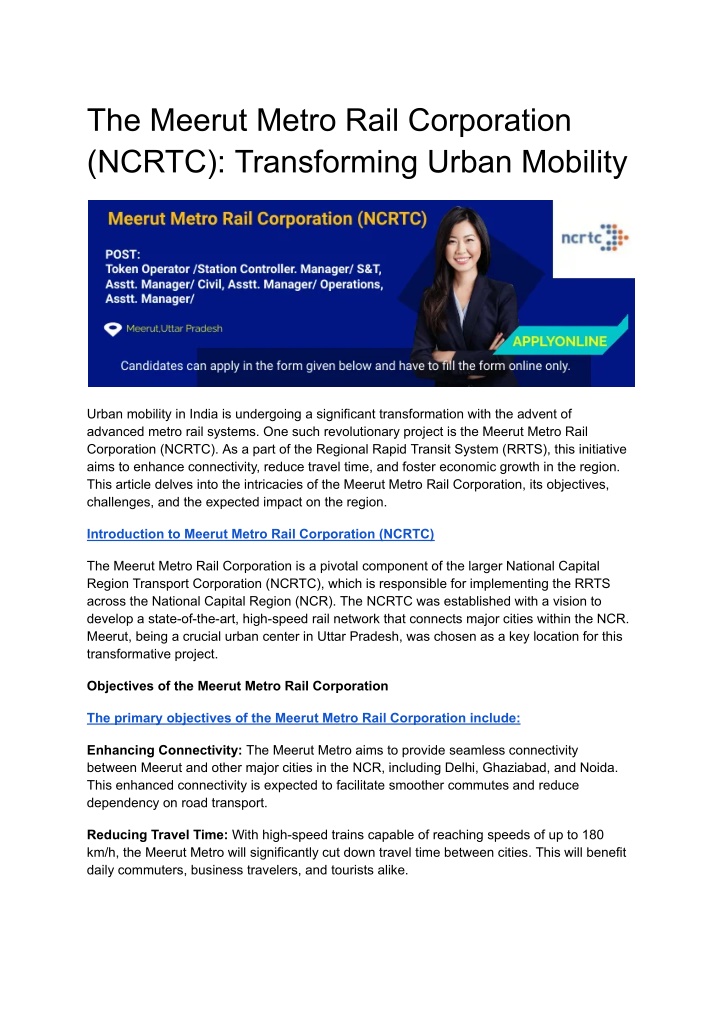
The Meerut Metro Rail Corporation (NCRTC)_ Transforming Urban Mobility
Urban mobility in India is undergoing a significant transformation with the advent of advanced metro rail systems. One such revolutionary project is the Meerut Metro Rail Corporation (NCRTC). As a part of the Regional Rapid Transit System (RRTS), thi
Download Presentation

Please find below an Image/Link to download the presentation.
The content on the website is provided AS IS for your information and personal use only. It may not be sold, licensed, or shared on other websites without obtaining consent from the author. If you encounter any issues during the download, it is possible that the publisher has removed the file from their server.
You are allowed to download the files provided on this website for personal or commercial use, subject to the condition that they are used lawfully. All files are the property of their respective owners.
The content on the website is provided AS IS for your information and personal use only. It may not be sold, licensed, or shared on other websites without obtaining consent from the author.
E N D
Presentation Transcript
The Meerut Metro Rail Corporation (NCRTC): Transforming Urban Mobility Urban mobility in India is undergoing a significant transformation with the advent of advanced metro rail systems. One such revolutionary project is the Meerut Metro Rail Corporation (NCRTC). As a part of the Regional Rapid Transit System (RRTS), this initiative aims to enhance connectivity, reduce travel time, and foster economic growth in the region. This article delves into the intricacies of the Meerut Metro Rail Corporation, its objectives, challenges, and the expected impact on the region. Introduction to Meerut Metro Rail Corporation (NCRTC) The Meerut Metro Rail Corporation is a pivotal component of the larger National Capital Region Transport Corporation (NCRTC), which is responsible for implementing the RRTS across the National Capital Region (NCR). The NCRTC was established with a vision to develop a state-of-the-art, high-speed rail network that connects major cities within the NCR. Meerut, being a crucial urban center in Uttar Pradesh, was chosen as a key location for this transformative project. Objectives of the Meerut Metro Rail Corporation The primary objectives of the Meerut Metro Rail Corporation include: Enhancing Connectivity: The Meerut Metro aims to provide seamless connectivity between Meerut and other major cities in the NCR, including Delhi, Ghaziabad, and Noida. This enhanced connectivity is expected to facilitate smoother commutes and reduce dependency on road transport. Reducing Travel Time: With high-speed trains capable of reaching speeds of up to 180 km/h, the Meerut Metro will significantly cut down travel time between cities. This will benefit daily commuters, business travelers, and tourists alike.
Promoting Sustainable Transport: By offering an efficient and eco-friendly alternative to road transport, the Meerut Metro aims to reduce the carbon footprint and contribute to a cleaner environment. Boosting Economic Growth: Improved connectivity and reduced travel time are expected to attract investments, boost real estate development, and create job opportunities in the region. Key Features of the Meerut Metro Rail Project High-Speed Connectivity: The Meerut Metro will be a part of the RRTS network, featuring high-speed trains that will drastically reduce travel time. The distance between Delhi and Meerut, which typically takes around two hours by road, will be covered in less than an hour by the metro. Modern Infrastructure: The project includes the construction of modern stations equipped with advanced facilities such as escalators, elevators, and automated ticketing systems. These stations will be designed to provide a comfortable and convenient experience for passengers. Integration with Other Transport Modes: To ensure a seamless travel experience, the Meerut Metro will be integrated with other modes of transport, including local buses, auto-rickshaws, and feeder services. This integration will facilitate last-mile connectivity and enhance overall accessibility. Safety and Security: The Meerut Metro will prioritize passenger safety and security by implementing advanced surveillance systems, emergency response mechanisms, and stringent safety protocols. This will ensure a safe and secure travel environment for all passengers. Challenges and Solutions Implementing a project of this magnitude comes with its own set of challenges. Some of the key challenges include: Land Acquisition: Acquiring land for the construction of metro stations and tracks can be a complex and time-consuming process. The NCRTC has been working closely with local authorities and stakeholders to ensure a smooth land acquisition process. Funding: Large-scale infrastructure projects require substantial funding. The Meerut Metro project has received financial support from both the central and state governments, as well as international funding agencies. This collaborative approach has helped secure the necessary funds for the project. Coordination with Multiple Agencies: The successful implementation of the Meerut Metro requires coordination between various government agencies, contractors, and stakeholders. The NCRTC has established a robust project management framework to ensure effective coordination and timely completion of the project.
Environmental Concerns: Large infrastructure projects can have an impact on the environment. The Meerut Metro project includes several measures to mitigate environmental impact, such as tree transplantation, rainwater harvesting, and the use of eco-friendly construction materials. Expected Impact on the Region The Meerut Metro Rail Corporation is poised to have a transformative impact on the region. Some of the anticipated benefits include: Reduced Traffic Congestion: With more people opting for the metro, road traffic is expected to reduce significantly. This will lead to less congestion, shorter travel times, and a reduction in vehicular pollution. Economic Development : Businesses and investors will likely relocate to the region as a result of improved connectivity, resulting in job creation and economic expansion. The rising demand for residential and commercial properties near metro stations is expected to also be beneficial to the real estate industry. Enhanced Quality of Life: The Meerut Metro will provide a comfortable, safe, and reliable mode of transport for residents. This will enhance the overall quality of life by making commutes more convenient and less stressful. Environmental Benefits: The Meerut Metro will assist to lower the region's carbon impact by encouraging people to take public transit. Energy-efficient trains and eco-friendly building procedures will help to ensure environmental sustainability. Conclusion An important development in India's urban transportation system is the Meerut Metro Rail Corporation (NCRTC). The plan is for the Meerut Metro to completely change the urban face of the region by facilitating high-speed connections, reducing travel times, and encouraging sustainable transportation. Despite the challenges that still lie ahead, the joint efforts of many stakeholders and a commitment to quality are making it possible for this unique project to be implemented successfully. The Meerut Metro promises to usher in a new era of financial prosperity, ecological maintainability, and provincial mobility as it gets closer to completion.



